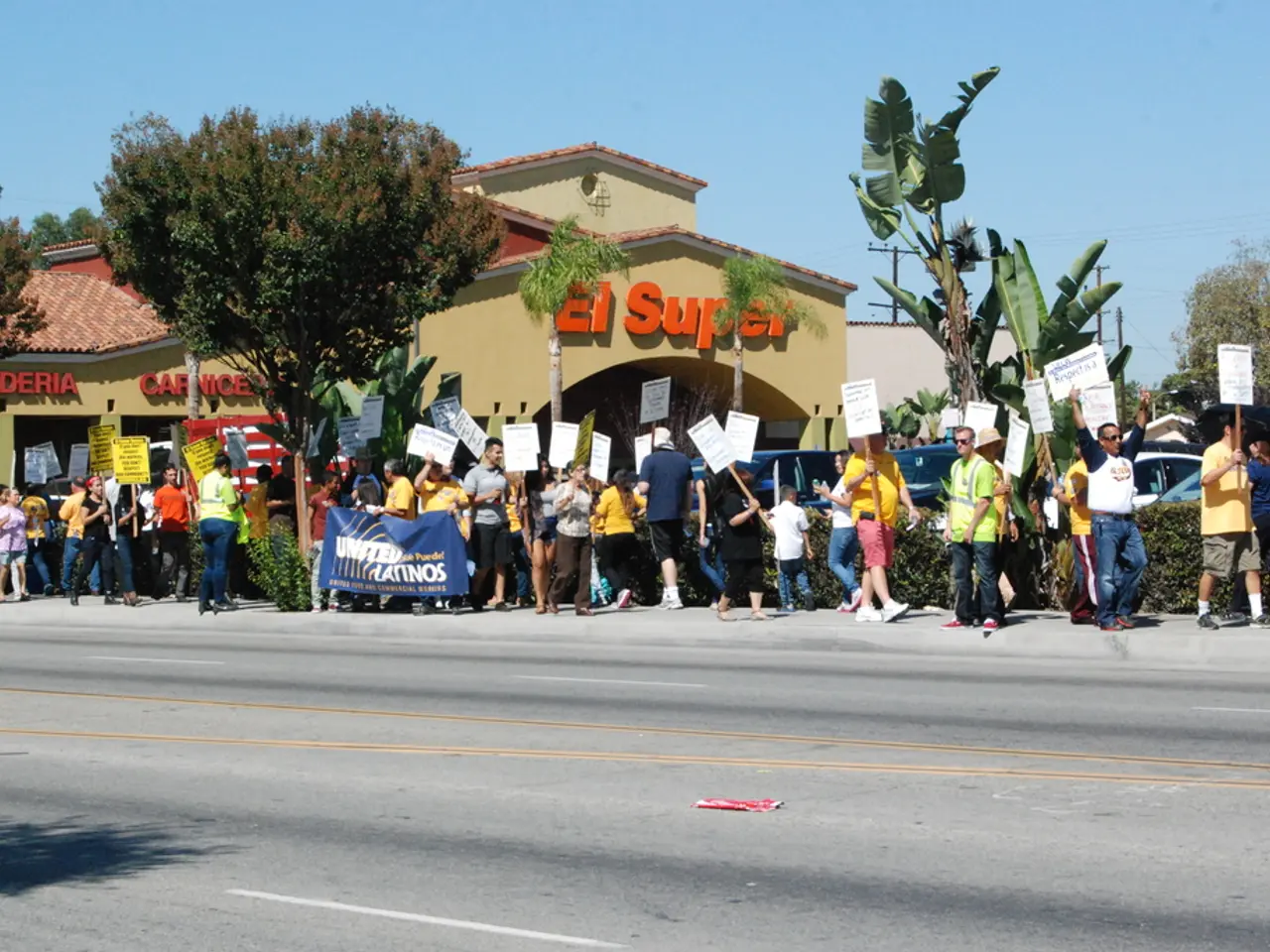Comprehensive 100-Point Political Strategy Guide for the Year 2025
In the world of modern politics, a successful campaign requires careful planning, strategic execution, and adaptability. Here's a breakdown of the key elements that make up a robust political campaign strategy.
Compliance Checks
Monitoring spending caps, filing reports with election commissions, and ensuring adherence to advertising regulations are essential compliance checks that help maintain transparency and integrity in the campaign process.
Strategic Adaptability
The strategy checklist should be reviewed weekly or monthly to adapt to voter shifts, media trends, and opposition moves. This flexibility allows a campaign to respond swiftly to changes and adjust its approach as necessary.
Financial Support
Fundraising is the lifeblood of any campaign, supporting campaign operations, advertising, events, and voter outreach.
Clear Communication
Defining key messages is part of building an effective communication plan. These messages should be clear, concise, and consistent, helping to forge a strong connection with voters.
Crisis Management
A crisis response plan is critical for managing unexpected challenges like controversies or opposition attacks. By having a plan in place, a campaign can respond swiftly and effectively to any potential issues.
Media Management
Positive media coverage boosts visibility and credibility, while monitoring helps manage negative press. Maintaining a positive relationship with the media is key to shaping public perception.
Performance Tracking
Tracking key performance indicators (KPIs) such as voter reach, engagement, fundraising goals, and polling numbers helps measure the success of a strategy. This data-driven approach allows for continuous improvement and adjustment.
Grassroots Mobilization
Door-to-door canvassing, local events, community meetings, and alliances with local leaders are essential steps for grassroots mobilization. Engaging with voters at a local level helps build a strong, personal connection.
Technological Advancements
Technology supports data-driven campaigning, AI-powered targeting, and efficient communication platforms. Leveraging technology can help a campaign operate more effectively and reach more voters.
Tailored Approach
Every campaign should tailor its checklist to the region, electorate size, budget, and candidate profile. A one-size-fits-all approach is unlikely to be successful.
Long-term Branding
The candidate should build a strong, consistent public image that lasts beyond the election through long-term branding. This helps to establish the candidate as a trusted and reliable figure.
Digital Presence
Digital campaigning, including social media, search ads, email outreach, and influencer engagement, is crucial. A strong digital presence can help a campaign reach a wider audience and engage with voters in a more personal and interactive way.
Opposition Research
Opposition research identifies competitors' strengths and weaknesses to anticipate attacks and counter their strategies. This proactive approach can help a campaign stay one step ahead.
Volunteer Power
Volunteers amplify outreach, manage ground campaigns, and connect with local communities. Their passion and dedication can make a significant impact on a campaign's success.
In the context of the 2025 Bundestag election, the major parties include AfD, CDU/CSU (Union), SPD, Bündnis 90/Die Grünen, Die Linke, and others. However, no direct information on a specific candidate's party for 2025 was found. Polls provide real-time voter feedback and help refine strategies, ensuring alignment with public sentiment.
Read also:
- Tobacco industry's suggested changes on a legislative modification are disregarded by health journalists
- Trump's Policies: Tariffs, AI, Surveillance, and Possible Martial Law
- Uncovering Political Ad Transparency: A Guide to Investigating opponent's Political Advertisements in the Digital Realm
- Elon Musk praises JD Vance's debate performance against Tim Walz








